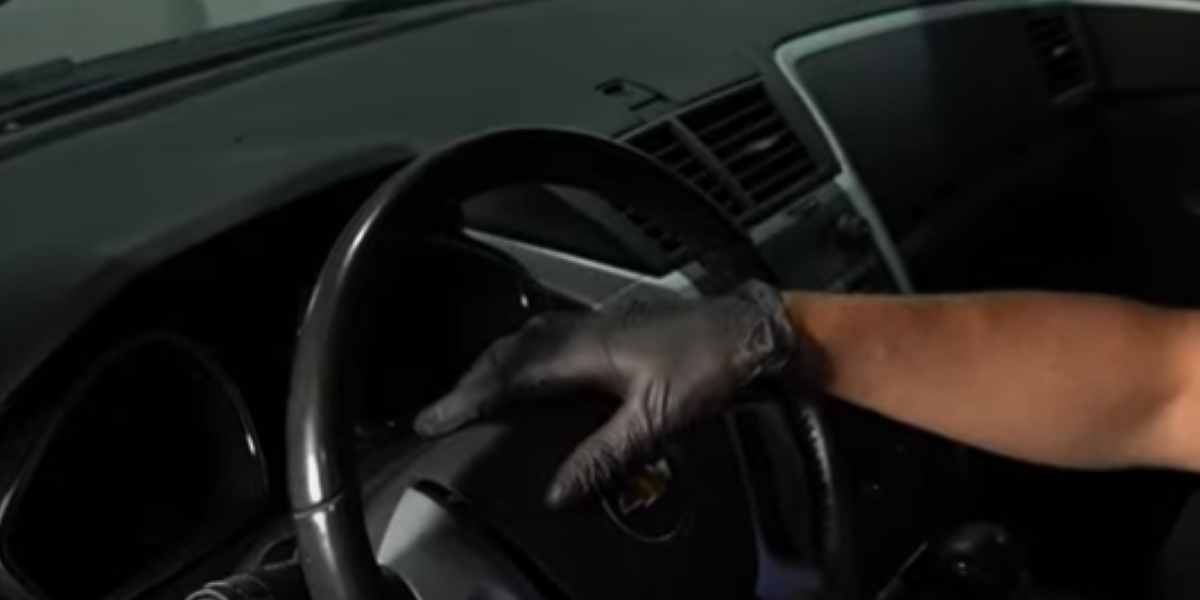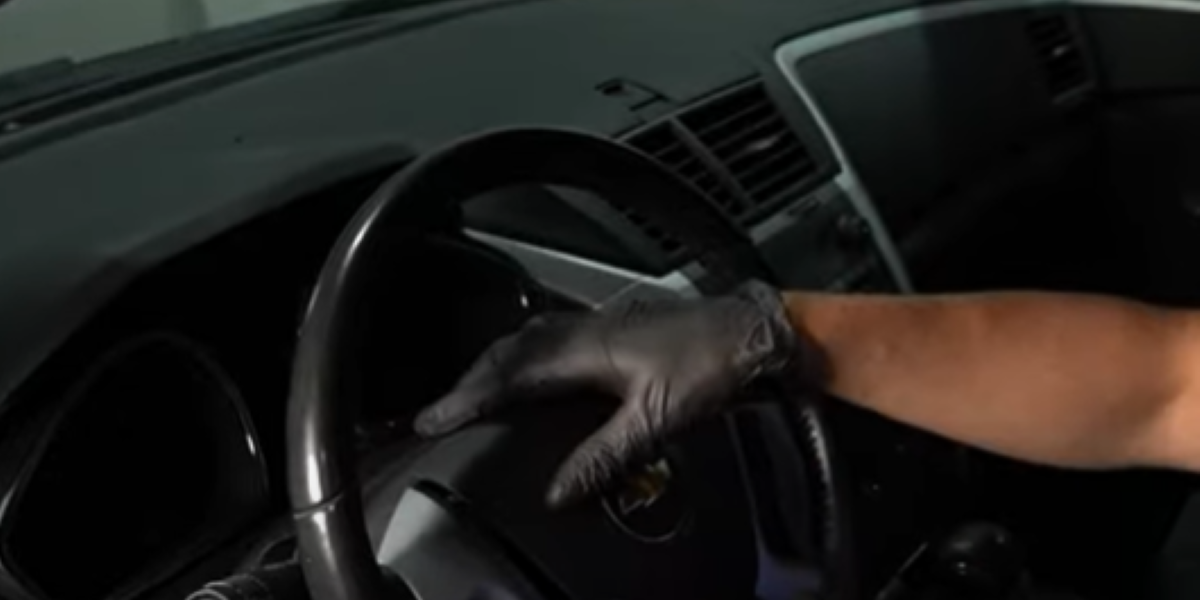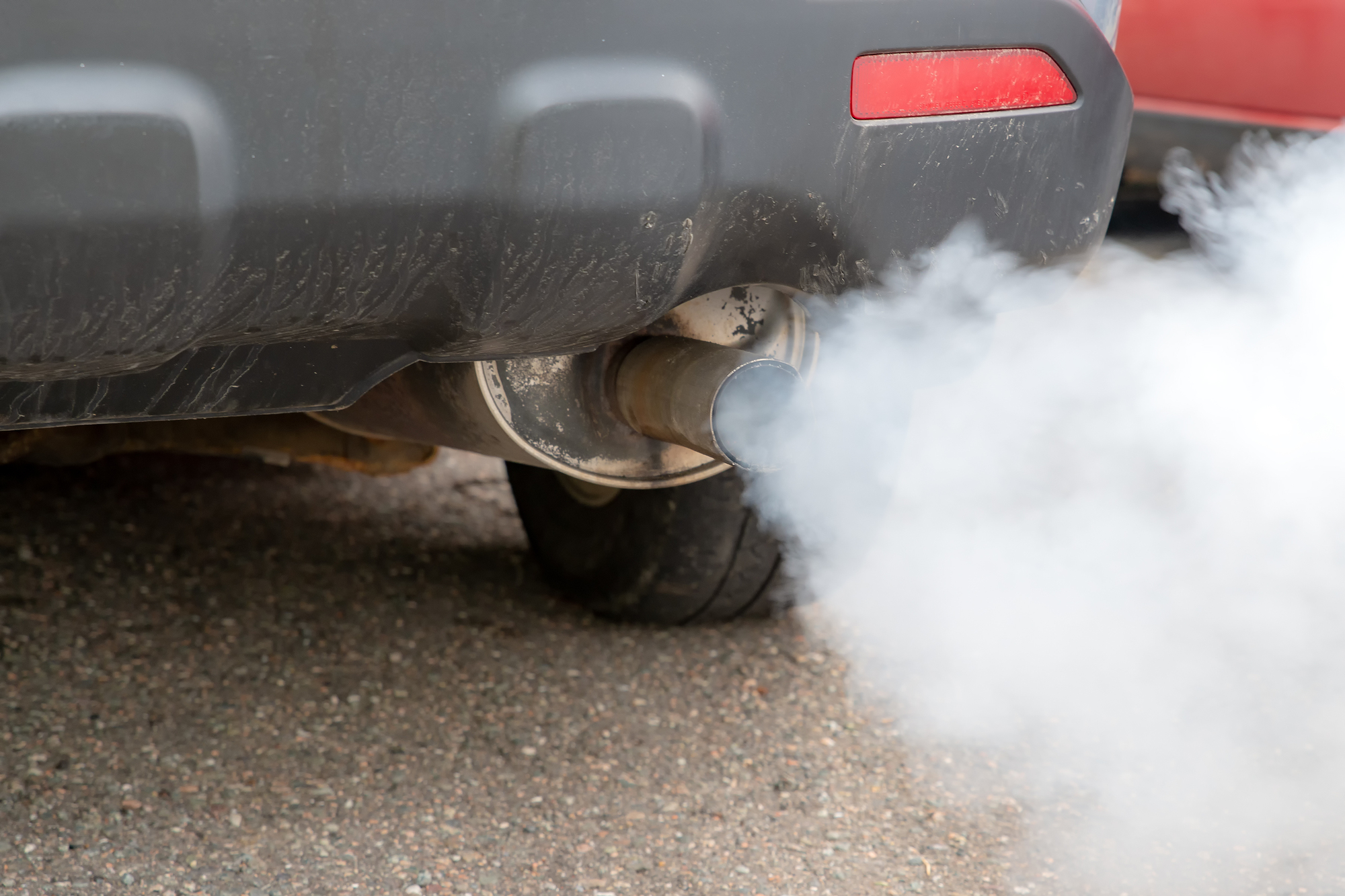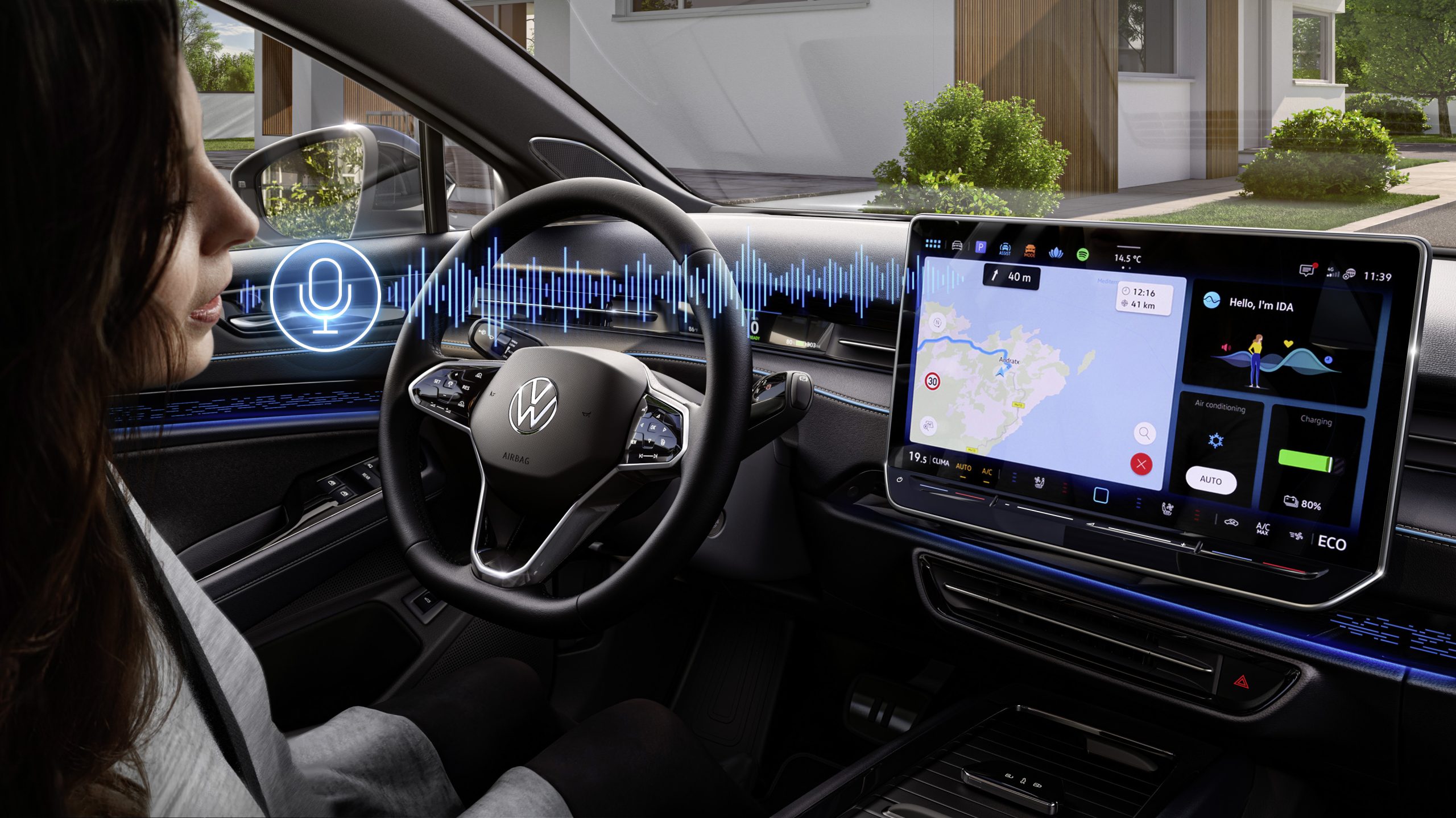Why Is My Car Honking When Parked


Possible Reasons for Car Honking When Parked
Car Horn Activating While the Vehicle is Parked
Various factors can cause a car’s horn to start honking when it’s parked. Here are three possible reasons why this may occur:
- Remote Key Fob Malfunction: The battery of a remote key fob that unlocks or locks the car doors and trunk might be running low or dead. As a result, the key fob might be unintentionally pressed and trigger the car’s alarm.
- Faulty Car Alarm System: The security system installed in the vehicle can malfunction and detect an unauthorised entry when no one is trying to break into it. This can activate the alarm and cause the car’s horn to sound loudly.
- Electrical System Issues: A problem with the electrical wiring of a vehicle can create a short circuit in either its ground wire or power supply line that powers several circuits simultaneously. This can activate various features of the car, like the starter motor, interior lights, and horn, even when parked.
Another factor that may cause a honking sound from a parked car may arise from abnormalities with its electromagnetic wave emitters.
A friend once shared her experience of being disturbed by an annoying beep unfamiliar to her, only to realise it was coming from her parking lot! Consequently, she sprinted out to check on her automobile before its eventual discovery. It was still locked and had been remotely activated via electromagnetic wave stimulation by an intruding party.
Mechanical Issues
There could be various underlying reasons why a parked car would start honking unexpectedly. Some probable mechanical issues may include malfunctioning of the horn switch or an electrical short circuit. In addition, issues with the battery, particularly a low charge, or problems with vibration sensors could also trigger the horn to activate.
Sometimes, the honking could be a result of a malfunctioning car alarm system or a lack of synchronisation between the car’s automation system and the key fob. A simple solution could be to reset the car’s alarm system or try replacing the key fob’s battery. However, in other cases, seeking professional assistance may be necessary.
It’s essential to address such mechanical issues as they can cause disturbance, inconvenience, and even lead to safety hazards. According to experts at the American Automobile Association (AAA), honking car incidents could potentially disturb peace within neighbourhoods and prompt complaints to law enforcement.
In a 2019 report by The Telegraph, a woman in the UK was fined for causing a disturbance due to her car honking late at night unintentionally. Hence, it’s essential to identify and resolve the underlying mechanical issue as quickly as possible to avoid any such incidents.
Faulty Alarm System
The system that alerts about errors and defects in the machinery appears to malfunction. This prevents the timely detection of mechanical issues, leading to increased downtime. This situation demands immediate attention, as it may compromise the safety and efficiency of the equipment.
A thorough check-up is recommended to ensure that all parts are working correctly and that any malfunctioning components are appropriately replaced.
In addition, this matter needs to be urgently reported to the technical team responsible for resolving these problems so they can perform a comprehensive diagnosis and rectify any malfunctions discovered promptly. Any delay in addressing it may cause significant damage and result in higher repair costs.
It is vital to always keep track of alarm systems’ functionality since it plays a crucial role in promptly detecting faults and preventing severe consequences. According to machine learning experts at Carnegie Mellon University, faulty machines account for approximately 10% of industrial accidents annually.
Therefore, functional alarms play an essential role in maintaining safe working conditions, reducing downtime, increasing productivity while saving lives, reducing costs on repairs and replacements of machines and components, improving product quality, and ultimately boosting profitability.
Malfunctioning Horn
A horn that is not functioning can cause serious safety hazards on the road. The car horn is an important safety feature that helps drivers alert other drivers and pedestrians to their presence on the road. When a horn malfunctions, it can lead to accidents and even fatalities.
One possible issue that could cause a malfunctioning horn is a blown fuse. A blown fuse results in a loss of power to the horn, which will prevent it from working correctly. Another potential problem could be a bad relay or switch in the electrical system. Corrosion or damage to these components can disrupt the flow of electricity needed to operate the horn.
It is essential to have the malfunctioning horn fixed by a professional mechanic as soon as possible to avoid any safety risks. Additionally, routine maintenance checks can help detect any issues before they become major problems.
To prevent future malfunctions, it is crucial to ensure that electrical connections are secure and corrosion-free regularly. Furthermore, replacing worn-out components promptly will help ensure that your car’s electrical system remains in top shape and functions correctly over time.
It looks like there’s a short circuit in the electrical system, but don’t worry, we’ll power through it.
Electrical Problems
Electric System Troubles
Electrical issues pertain to faults that affect the electronic components in a machine or appliance. Circuits bearing constant loads may strain sensitive parts like the fuse, wiring, or battery. The cause of these malfunctions may either be electrical errors in insulation or external faults resulting from extreme weather conditions.
It is advisable to undergo regular checks for faulty wiring and upgrade obsolete electrical systems to prevent significant problems. Many fire cases were reported as a result of slight electric current malfunctions.
Unattended electrical complications might lead to severe outcomes such as burnt-out wires and blown-up appliances. Be aware of potential threats, not only for monetary damages but also out of safety concerns.
As per the National Fire Protection Association (NFPA), 47,820 house fires each year occur due to an electrical failure at an expense close to USD 1.5 billion.
Environmental Factors
In urban environments, a vehicle may honk even when parked due to various external factors. These factors include noise pollution, abrupt impacts from wind gusts or nearby traffic, and sensor malfunctions. Inclement weather such as rain, snow, or hail can cause unintended vehicle alarm activation as well. Additionally, vandalism or attempted theft may trigger the alarm system.
Extreme Temperatures
Extreme temperatures refer to conditions that greatly deviate from the average or expected temperature range in an environment. The impact of such temperatures can be significant on both living organisms and inanimate objects. High temperatures above a specific threshold can cause heat stress, dehydration, and even death in living organisms. On the other hand, low temperatures below the optimal range can lead to hypothermia and hamper metabolic processes. In addition, abrupt temperature changes can also lead to mechanical fatigue and the chemical degradation of materials.
In extreme heat environments, it is crucial to maintain proper hydration levels, wear protective clothing, and avoid strenuous activities during peak hot hours. Similarly, in cold environments, wearing appropriate layers of clothing and keeping oneself warm is necessary for surviving harsh temperatures. For engineering applications, materials with high thermal stability should be used in extreme temperature conditions to prevent damage due to thermal shock.
Pro Tip: It’s essential to plan before visiting or working in areas with extreme temperatures by carrying out thorough research on how to cope with such environmental factors.
Animals and Insects
Many wild creatures, ranging from small insects to large mammals, play a significant role in the environment. They help to maintain essential processes such as pollination, control of pests and diseases, and regulation of ecological systems. Shockingly, some species are facing extinction due to deforestation, urbanisation, climate change, poaching, and pollution.
Animals act as natural indicators for environmental changes; they relay information about the occurrence of events that may affect their survival. Insects have an essential role in the pollination activities of plants, without which food production will significantly decrease. Various animals step in to regulate pests’ populations by acting as biological predators. Regulations around forest clearing are necessary to provide habitat for various animals.
Surprisingly, it was seen at orangutan rehabilitation programmes in Borneo where orangutans would pick up plastic trash on the beach and attempt to mimic tourists taking selfies while holding it. Also seen was an orangutan gesturing and mimicking logging equipment as they watched the machines cut down trees time and again.
Third-Party Interference
In the context of environmental factors, the occurrence of intervening forces from an external entity could significantly impact the environment. Whether it is a deliberate or inadvertent act, a third party’s interference can disrupt the ecosystem, alter biodiversity, and pose risks to human health.
For instance, in an industrial area, third-party intrusion, such as illegal dumping of toxic waste in landfills, can cause severe soil contamination and water pollution. Additionally, unauthorised practices like deforestation activities or illegal hunting can affect natural habitats and endanger endangered species.
In some cases, third-party interventions occur unknowingly as a result of natural disasters like hurricanes or storms. The aftermath of these events leaves behind tonnes of debris and chemicals that can pollute the environment if not disposed of properly.
Reports have revealed how third-party interference in marine ecosystems has led to catastrophic consequences for aquatic life and environmental systems. In 2010, the BP oil spill disaster caused by a drilling rig explosion in the Gulf of Mexico affected marine biodiversity over thousands of miles.
User Error
Paragraph 1:
When users face issues with their parked car honking, it is commonly considered a human error. In such cases, the car owner may unknowingly hit the buttons on their key fob, which triggers the car horn.
Paragraph 2:
Another possible cause of parked car honking could be an issue with the car’s security system. If any unauthorized person or object comes in contact with the car, the security sensors may trigger the horn.
Paragraph 3:
It is important to note that parked car honking could also indicate a problem with the car’s electrical system. Faulty wiring, a malfunctioning horn relay or switch, or a weak battery could all result in unintended honking.
Paragraph 4:
According to Consumer Reports, excessive honking can lead to costly fines or penalties depending on the local laws. It is important to resolve the issue as soon as possible to prevent such consequences.
Accidentally Pressing the Panic Button
It is common for users to mistakenly trigger alarms or alerts by pressing the wrong button. This can cause potential harm and false alarms in many scenarios, ranging from medical emergencies to security alerts. Such incidents can lead to unnecessary panic and confusion among responders, putting human lives at risk.
To prevent these accidents, it is crucial to provide clear instructions on how to properly operate alarm systems and other emergency responses. Additionally, it is recommended to install safety measures that require multiple steps or confirmation before triggering an alarm, thus reducing the likelihood of accidental activations.
Despite precautions in place, user errors still occur. A case of accidental activation happened in a public park when a passerby thoughtlessly pressed a panic button on a security tower, triggering a massive response from authorities. It was discovered that the incident could have been avoided if more detailed instructions had been provided and safety measures were enhanced.
Improper Parking
Parking in Non-Designated Areas: Improper parking can cause chaos and disturbance in a location. It is essential to park vehicles only in designated areas to avoid obstruction of paths, and emergency exits and endangering oneself or others.
Continued vehicle parking outside marked lines or areas can create a chain reaction of misplaced vehicles, causing distress. By not following the protocols for orderly and safe parking arrangements, potential risks come into play. These can include dents on vehicles, missing possessions, delayed trips, or accidents.
It is crucial to follow guidelines for staying away from trouble while maintaining orderliness. Neglecting these measures may lead to undesirable consequences such as hefty fines, revocation of license and vehicle seizure.
To ensure safety, disciplinary actions should take effect for every breach which occurs due to improper parking. Remember that one’s lack of follow-through may put another person’s life at risk. So always do your part by practising proper parking etiquette.
Troubleshooting and Resolving the Issue
In this article, we will guide you on how to troubleshoot and resolve the issue of a car honking when parked. Follow the steps below to solve the problem efficiently.
- Check the car key. Double-check if the car key is not accidentally being pressed while in your pocket. Remove the key and check if the honking stops.
- Check the car alarm system. Inspect the car alarm system and ensure that it is not malfunctioning. If faulty, repair or replace the car alarm system.
- Look for stuck buttons. Check if any buttons on the car dashboard or steering wheel are stuck. Press and release them to ensure they are not stuck.
- Inspect the battery. A low battery in the car key fob can cause the honking. Replace batteries and check if the issue persists.
- Consult a professional. If the above steps do not work, consult a professional to avoid causing further damage.
Remember to follow these steps to avoid further honking and disturbance.
Pro Tip: To avoid a parked car honking, park in quieter locations and avoid confined spaces or areas that can trigger the car alarm system.
Seeking Professional Help
If troubleshooting doesn’t solve the issue, there are various options available to resolve the problem. Seeking assistance from a qualified technician or expert is highly recommended. This can save time and effort in trying to fix the problem on your own. A professional can identify the underlying cause and provide an appropriate solution.
In addition to consulting with a professional, seeking help online from relevant forums or communities could also prove useful. Many people share their knowledge and experiences, which could provide a better understanding of complex issues.
When seeking professional help, it’s important to do thorough research before making any commitments. Look for service providers with good reviews and ratings from previous customers. It’s also important to ensure that they have the necessary certifications and experience to handle the specific issue.
Neglecting to seek professional help could result in further complications or even irreversible damage to your system or device. Don’t take this risk – invest in a qualified technician who can provide effective solutions and avoid future headaches.
Don’t wait until it’s too late; seek professional help as soon as possible to avoid further problems or damages. Remember, prevention is always better than cure!
DIY Solutions
It’s time to take matters into your own hands with self-help solutions for troubleshooting and resolving issues. Take a proactive approach by utilizing DIY techniques to resolve common problems.
| DIY Solutions |
|---|
| Clearing browser cache |
| Installing the latest software updates |
| Running virus scans |
With these solutions, you can avoid the frustration of technical difficulties and have peace of mind knowing that you can handle them independently. However, it’s important to note that these options are best utilized in non-emergency situations.
While DIY techniques can save time and money, it’s important to know when to seek professional assistance. For more complicated issues, do not hesitate to contact an expert in the field for guidance.
Don’t let technical issues hold you back. Stay in control and be empowered with DIY solutions at your fingertips. Act now to overcome obstacles and prevent setbacks.
Working with Car Dealerships or Manufacturers
When encountering issues with your car, it’s important to communicate effectively with the involved parties, whether a dealership or manufacturer. Stating your concerns clearly and concisely can help expedite the resolution process. Utilize documentation including warranties and service history to support your claims.
Collaborating with dealerships or manufacturers requires patience and persistence. Oftentimes, multiple departments are involved in resolving an issue, such as customer service, technical support and repairs. It’s important to stay organized and maintain records of all communications for future reference.
In addition to traditional communication methods like phone calls and emails, social media platforms provide an additional avenue for reaching out to dealerships or manufacturers. Publicly addressing issues on these channels encourages transparency by holding companies accountable.
Don’t let unresolved car issues cause unnecessary stress – take action by working collaboratively with dealerships or manufacturers through effective communication and documentation to ensure a satisfactory resolution is reached.
Why Is My Car Honking When Parked – Frequently Asked Questions
Q: Why is my car honking when parked?
A: There could be a few reasons why your car is honking when parked. It could be due to a malfunctioning car alarm, a faulty key fob, or a problem with the horn itself.
Q: How can I determine the cause of my car honking when parked?
A: The best way to determine the cause of your car honking when parked is to take it to a certified mechanic or dealership for a diagnostic checkup.
Q: Can a dead car battery cause the car to honk when parked?
A: Yes, a dead car battery can cause the car to honk when parked as the alarm system may be triggered by the loss of power.
Q: How do I fix a malfunctioning car alarm?
A: The first step is to check the batteries in the key fob. If that doesn’t work, try resetting the alarm system by disconnecting the battery or taking it to a mechanic.
Q: Can extreme temperature changes cause the car to honk when parked?
A: Yes, extreme temperature changes can cause the car to honk when parked as the electronic components may expand or contract, triggering the alarm system.
Q: Is it dangerous for my car to keep honking when parked?
A: It’s not necessarily dangerous for your car to keep honking when parked, but it is extremely annoying and can disturb neighbours or draw unwanted attention to your vehicle.










